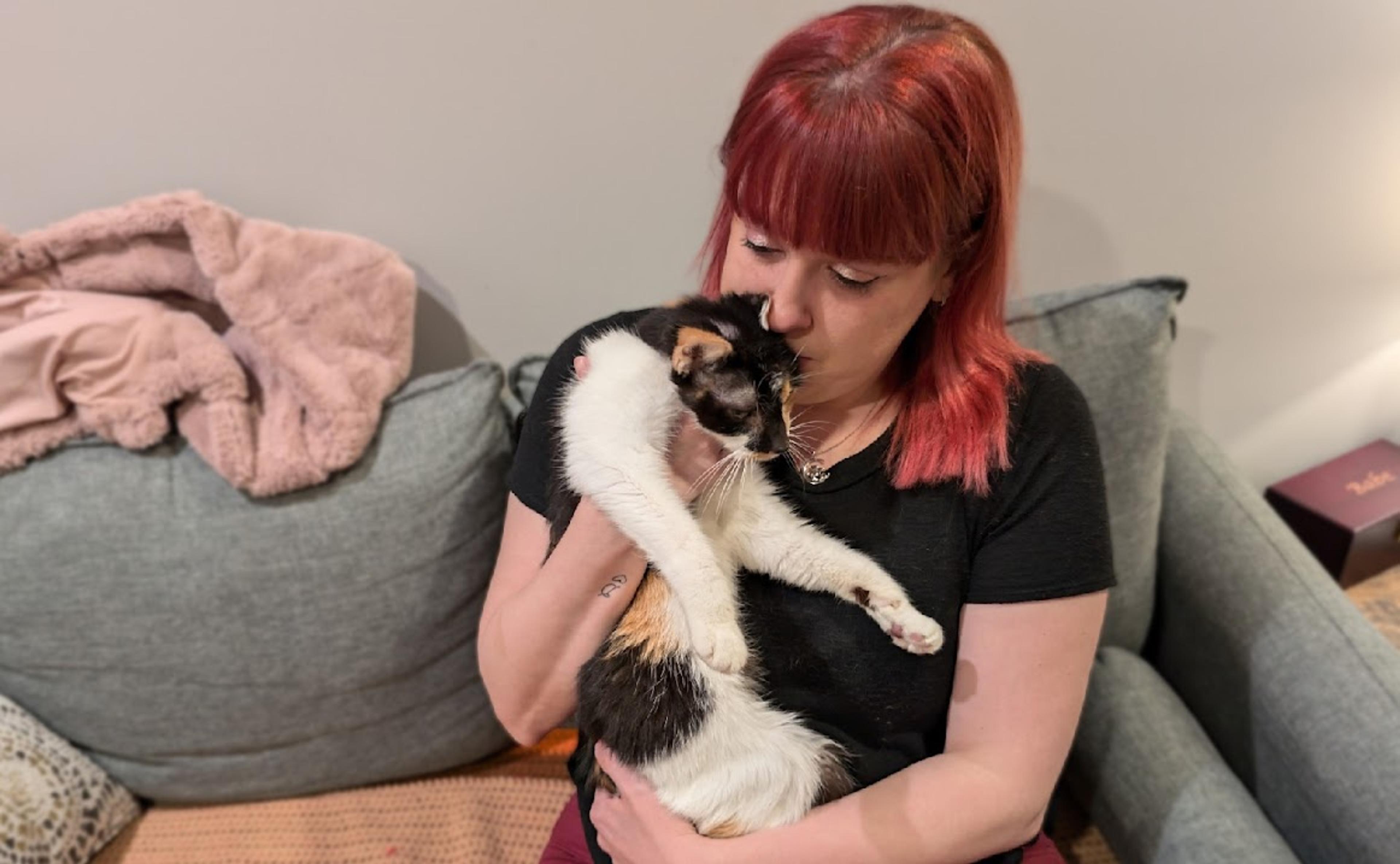How I Coped With Grief After My Pet’s Death

Monica Drake
| 3 min read

I’ve written before about how my pets have helped my mental health. The downside, though, is that the opposite can happen after losing a beloved pet. Most pet owners will have to face the reality of saying goodbye to them in their lifetime.
With the death of my first-ever pet, a cat named Katniss who I adopted soon after moving out of my parents’ house, I fell into a deep depression. Working from home, I spent more time with my cats than anyone else. Two months later, I still catch myself about to call Katniss’ name or thinking I see her out of the corner of my eye.
I don't think we talk enough how traumatic the death of a pet can be. When it comes to losing an animal family member, there's one thing you don't experience with anyone else – the fact that sometimes you must be the one to decide when they die.
Katniss lost about half her body weight in the past year. She had mammary cancer that spread to her lungs. During her last appointment, the vet thought it had spread to her stomach, which was why, even though she seemed to have a good appetite, she wasn’t gaining any weight.
The vet recommended we put her down that day, but I decided to wait another 24 hours. I wanted to take the day off work and have time to say good-bye. It was the most difficult 24 hours I’ve ever had, but I don’t regret it for a second.
Whenever I catch myself wondering if I made the right decision, I remind myself of this advice from pet behavioralist Jackson Galaxy: "Never on their worst day."
Despite everything else, I made sure Katniss' life didn't end on her worst day. She had a pretty good last day; she ate tortellini with chicken and cream cheese sauce and watched birds and squirrels on YouTube. It was the hardest decision I've ever had to make, but I think it was also the greatest final gift I could've given her —to no longer suffer and to not die alone.
Jackson put a name to what I’m experiencing – “disenfranchised grief,” a type of grief that is not openly acknowledged, socially validated or publicly mourned. For instance, I didn’t get bereavement time off work, people didn’t send me flowers and we didn’t have a memorial service or any of the other things we usually do to honor the end of a life.
I think memorializing who you lost is an important part of the grieving process, though, that's often overlooked when it comes to pets.
When Katniss was diagnosed with cancer, I contacted a local pet photographer and had portraits taken of her before she died, which helped with the grieving process. I asked my friends what they did to memorialize their pets. One friend set up a memorial for his cats in his home with their photos, ashes and a statute of St. Francis of Assisi, the patron saint of animals. Another friend is putting her dog's ashes in a necklace, and another friend told me she has her pet's urn on her nightstand.
I have also found that it helps to talk about it. I'm thankful to have a community of people who have reached out to me since Katniss' death and thankful to my co-workers who gave me a sympathy card when I came back to the office. They all made me feel like my grief was valid.
There are pet bereavement groups you can join. Click here for pet loss resources in Michigan or search online for pet bereavement groups near you.
Image: Courtesy of Monica Drake
Related:





